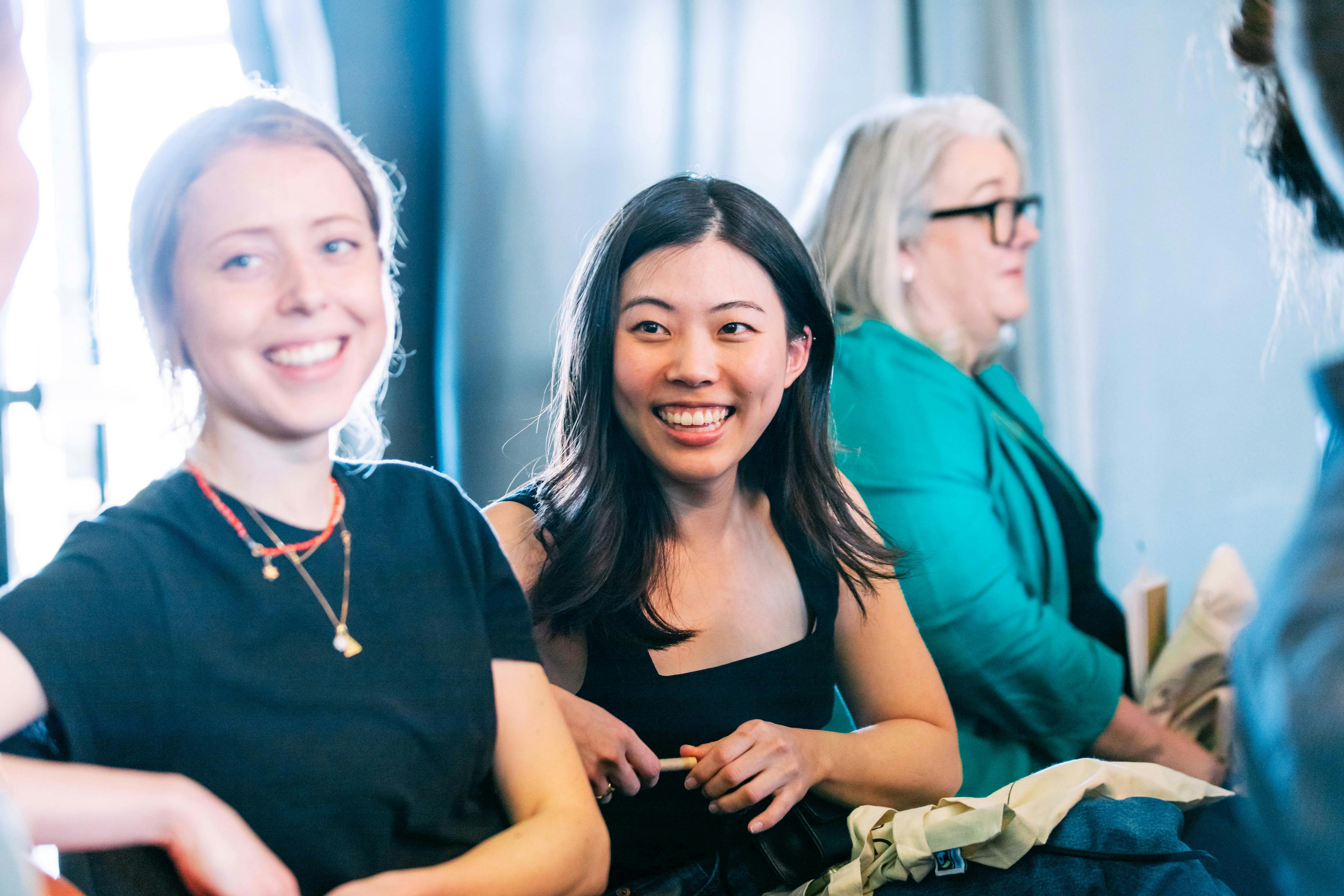
Candid Conversations with 6 Inspiring Women at Edge Impact
At Edge Impact, we take pride in the diversity that enriches our organisation, with 56% of our people identifying as women.
As we celebrate International Women's Day 2024 under the theme "Inspire Inclusion," we recognise the significance of moving beyond mere rhetoric to implement tangible actions for workplace inclusion and gender diversity.
In this year's feature, we engaged in a candid conversation with seven inspiring women from across the organisation.
Considering their unique personal experiences and perspectives we’ve gathered insights on how women of all ages, roles and backgrounds overcome challenges to thrive.
These insights not only inspire but provide a roadmap for organisations globally to actively foster a more inclusive and diverse workplace.
I have learnt that young ambition, especially that in women, is to be nurtured, celebrated and protected.
It taught me to respect those with a lot more experience than me regardless of age or gender – sometimes you just need to shut up and listen.
It taught me the value of building strong relationships to nurture psychological safety and how this leads to stronger performance.
It taught me the value of simply getting stuff done. It eventually taught me to channel my femininity, not hide it.
Ashleigh Burnham, Head of Sustainability Transformation
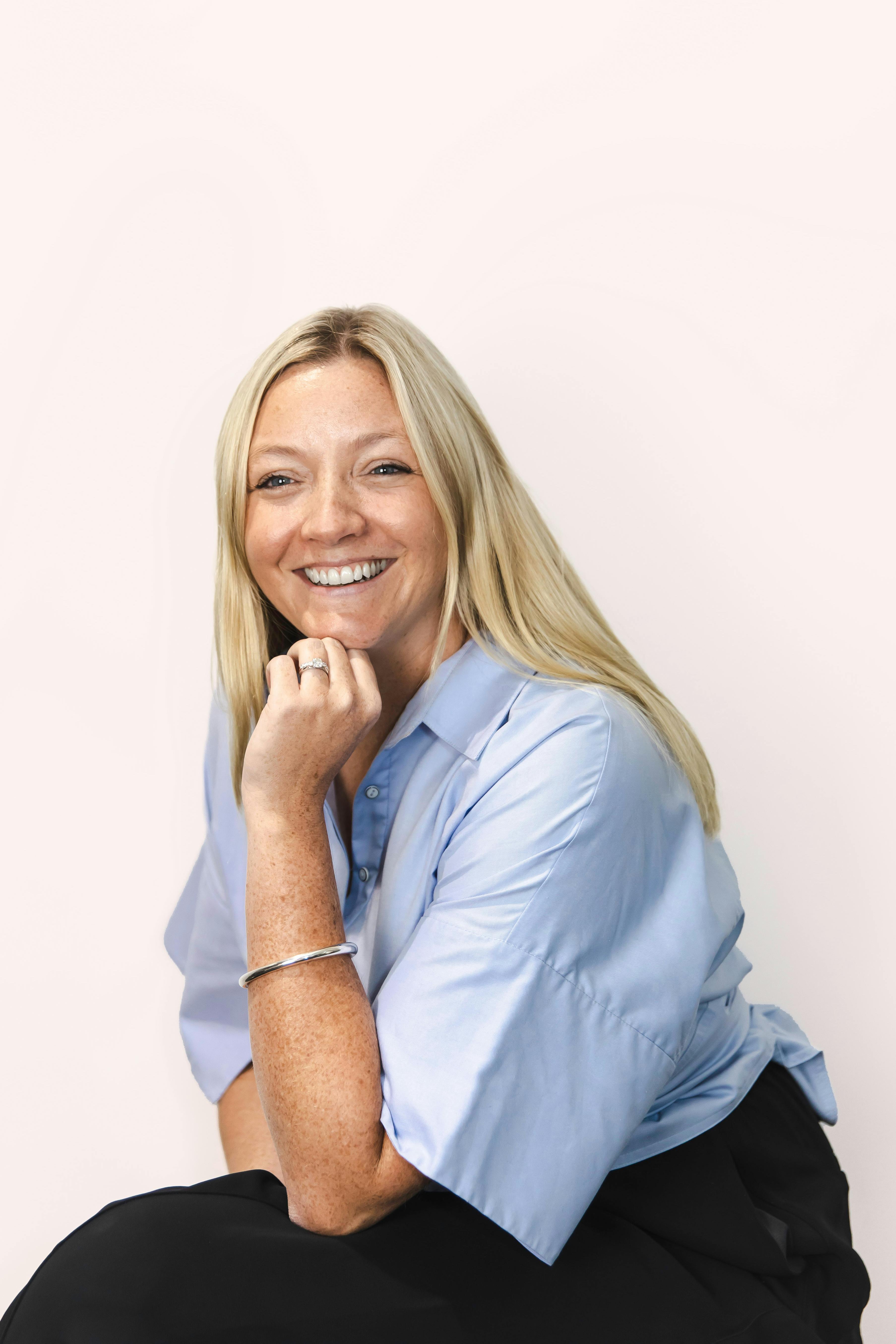
Ashleigh Burnham, Head of Sustainability Transformation
In her role as Head of Sustainability Leadership & Transformation at Edge, Ash is responsible for helping people, brands, products and organisations transform into sustainability leaders by making it part of how they think, act and show up in the decade of action.
Ash, your journey as a leader in the Sustainability Transformation space and most recently as a soon-to-be-mum is truly inspiring.
We'd love to delve deeper into your experiences, acknowledging the challenges and appreciating the strength it takes to lead effectively during this significant period.
Balancing the demands of a leadership role with the physical and emotional aspects of pregnancy can be challenging. Could you please share some insights into how you prioritise your well-being while effectively leading a team? Are there workplace practices or policies instrumental in supporting your journey?
This is such a great question and something I’ve been navigating imperfectly. Let me start by saying this is purely based on my personal experience, it’s different for everyone and you don’t really know what it’s like until you’re in it. I also don’t think we talk enough about the challenges women face in the workplace who don’t want to or can’t have a family – another time?!
First, the physical and emotional challenges of building a family and navigating your career start well before pregnancy - this could be years. When is the right time to start a family? What impact will it have on my career? On the flip side there are all the ways in which this journey expands and evolves skills, value and leadership. How can I ensure our business is best set up to support our people during different stages of life? What will being a Mum teach me about leadership and our work in impact?
Second, I think pregnancy looks pretty different these days and most workplaces haven’t caught up. There are questions around fertility, pay structures and differently shaped families that all require a nuanced approach.
Third, I’m the first to admit that my work is a big part of my identity. So, when it comes to preparing for things like maternity leave, I’ve been caught off guard by how hard I’ve found “letting go”. What if they forget about me? What if my mat leave cover thinks I’ve been getting it all wrong? What will I come back to? I admire people who can say “see ya, I’m out”, but this just isn’t me. I’m proud of my achievements, reflect deeply on my failings and try to lead with a good mix of head and heart. Planning your own exit from a job that is part of you is simply a weird and vulnerable time. A great deal of sensitivity and support is required. There is no manual for how to “let go” of a team and business you’ve worked so hard to help build but at some point, you just have to. Work in progress!
And finally, the physical and emotional challenges of pregnancy. Physically, I experienced 19 weeks of all day sickness (yes, that’s a long time but not as extreme as many women face). This happened at a time I was overseeing the delivery of one of our most demanding and complex programs of work to date. Did this have a negative impact on my work and how I showed up for my team and my clients? Big time! There were important workshops where I lost my train of thought. There were days I struggled to get out of bed. There were days I wasn’t my best self for others. There was work I couldn’t do that fell onto the shoulders of others. There was less face time with my team impacting my ability to lead effectively. This experience has undoubtedly helped me have a much greater appreciation for the range of mental and physical challenges people face in the workplace with and beyond pregnancy. It’s also got me thinking about the specific ways in which consulting businesses like ours can support our people with changing needs while delivering for our clients.
So, what are the things that have helped?
First, I made the decision to share my journey with my boss and HR partner early because I was physically unable to manage. It was one of the best things I did. I felt a weight off my shoulders and it lightened the mental load immediately.
Second, Edge had recently reviewed and improved its Parental Policy. This includes a competitive package of support. Knowing this was done and that I could trust it was good meant the world. One less thing to worry about. Special mention to paid superannuation and access to additional health leave.
Third, flexible work. Being able to work flexible hours from a location that best suited my changing needs was quite simply – unbeatable. Plus, this made managing the onslaught of medical appointments easier.
Fourth, open communication. Again, not for everyone but for me this helped. I communicated with my team openly if it was “not my day”. I also had a couple of great support people who I’d connect with frequently.
Put simply – it’s a lot. Balancing the joys of pregnancy with the demands of a leadership role is not easy and it’s up to you to find what works. Again, this is all my personal experience, it’s different for everyone.
In your leadership position, diversity and inclusion are undoubtedly priorities. How do you believe diverse perspectives, particularly those of women, contribute to more effective decision-making and innovative solutions within the sustainability domain and leadership in general?
I spent the first years of my career working in a male dominated business – often the youngest person in the room by 20 or 30 years (!!!) and most of the time the only female. I’ve spent time living and working in the UK, Europe, US and Asia. I’ve worked for ASX listed businesses, family run enterprises, worked for myself and an employee shareholder owned B Corp.
I am deeply grateful for my collective experience and what it continues to teach me. I have learnt that young ambition, especially that in women, is to be nurtured, celebrated and protected. It taught me to respect those with a lot more experience than me regardless of age or gender – sometimes you just need to shut up and listen. It taught me the value of building strong relationships to nurture psychological safety and how this leads to stronger performance. It taught me the value of simply getting stuff done. It eventually taught me to channel my femininity, not hide it. It’s helped shape what kind of leader I do and don’t want to be and continues to help me learn from my failings along the way. All of this to say…the more diverse the experience, thinking, views, backgrounds the better.
Whilst this is widely acknowledged in the sustainability community (more diverse voices = a healthier, happier and more equitable future) I think sometimes we fail to walk the talk. If we’re not careful, sustainability risks further isolating itself from the rest of the world. I see this playing out already in several ways:
- Sustainable products, services and solutions risk becoming something that’s a luxury for those that can afford it
- The sustainability community stifles itself from within its very loud echo chamber (or maybe this is just my LI feed!)
- We become detached from reality - outside our bubble the world is deeply polarized, democracy faces unprecedented shifts and most people are just trying to get through the day with food on the table and don’t give two hoots about net zero targets…
If we don’t radically and drastically get into other conversations, functions, rooms and ideas it’s game over. Of course, there are many wonderful ways in which this is happening. I see it in the work we do and the expanding stakeholders we are lucky to work with each day from finance to marketing to Boards and the C-Suite. And, what a time to be doing what we’re doing! Let’s just make sure we bring everyone with us.
It's about more than just filling seats with different people; it's about listening to what they have to say.
The unique perspectives everyone brings, especially women, are crucial.
They help foster real innovation, genuine empathy, and the kind of adaptability that keeps an organisation moving forward. That’s the kind of environment where everyone, including the business, truly thrives.
Kate McGregor, Global People and Culture Director
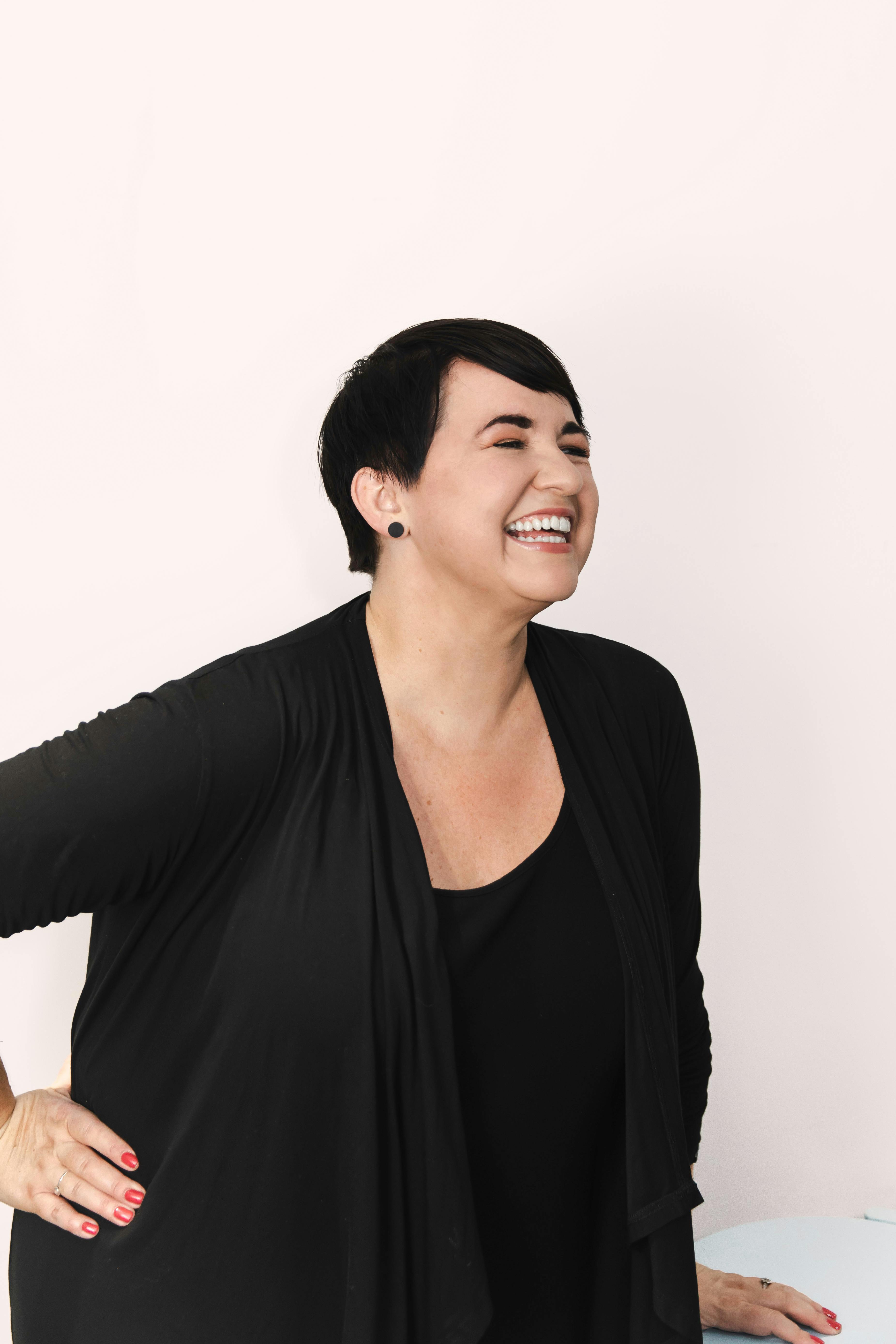
Kate McGregor, Global People and Culture Director
With over 20 years of experience as an authentic, energetic, and action-oriented people and culture professional, Kate has collaborated with leaders of all levels to deliver sustainable and impactful business outcomes through innovative people strategies.
Kate, your abilities shine through in creating a vibrant and inclusive workplace at Edge. However, with the organisation's workforce rapidly growing, balancing the evolving needs of a diverse team must present its unique set of challenges.
As the Global People and Culture Director, can you share how you have worked to implement gender-inclusive policies within the organisation? Can you share examples of initiatives that go beyond representation and actively contribute to creating an inclusive workplace where women can thrive.
I'm really dedicated to creating real, meaningful changes that encourage a more inclusive environment. We've updated our working policies to enhance flexibility and significantly expanded parental leave for all caregivers, supporting our team during pivotal moments.
I’m particularly proud of our efforts to bring diversity to our extended leadership team. We’ve achieved a 50/50 balance between female and male leaders, which has been a major step forward in our commitment to diversity and inclusion.
We recognise this is only the beginning. Our goal is to continuously improve and to create a workplace where everyone, especially our leadership, reflects the diversity we value.
Reflecting on your experiences, what role do you believe women play in shaping the leadership and success of an organisation? Can you provide personal insights or challenges you've overcome that highlight the importance of women in leadership.
From what I’ve seen and experienced, bringing different kinds of thoughts and experiences into leadership just makes everything work better. It’s not only about including women, though they’re key players, but also about embracing a whole spectrum of perspectives. This mix leads to decisions that are more well-rounded and approaches that are more inclusive, shaping a workplace that feels right for everyone.
I’ve spent time in number of male dominated industries throughout my career which has given me perspective on why we need different voices at the table. I’ve also navigated through personal responsibilities like caring for my parents and starting a family later in life.
All these experiences have made me a firm believer in the power of diversity in thought, especially in leadership.
I would encourage every woman to recognise the significance of their thoughts, especially when they differ from the prevailing ones.
Our backgrounds, whether cultural or otherwise, enrich our collective perspectives and ensure the importance of embracing our uniqueness.
This is why we can, why we should, and why we need to confidently express our viewpoints.
Xinyue Zhang, Senior Consultant (North America)

Xinyue Zhang, Senior Consultant (North America)
Xinyue is a senior sustainability consultant within the Edge North America team. With 6 years of sustainability consulting experience mainly on product LCA, corporate carbon strategy, and project management.
Working in a dispersed team, building a sense of inclusion can be complex. Can you share your personal approach to nurturing inclusion? How do you ensure that your experiences and perspectives, as well as those of other women in the team, are valued and heard?
I believe fostering inclusion within a dispersed team begins with communicating, embracing, and celebrating our differences. For example, in the US team, we organise weekly team coffee chat where team members can connect on a personal level, share our diverse views on topics ranging from cultural holidays, individual life objectives, to aspirations from a book or movie, and opinions on various hot topics.
These sessions provide a valuable platform to exchange experiences and perspectives, which also contribute to a culture of inclusion and mutual understanding. By being open minded and respecting different views, we can learn from different perspectives, and embracing the diversity is an effective approach to nurture inclusion in a dispersed team.
As a woman from a different culture background, I initially struggled with feeling comfortable in sharing my perspectives. When I just came to this different culture, I questioned whether my different viewpoints might be misunderstood due to cultural differences, fearing that I might not be accepted if I voiced my thoughts. I had to “fit in”.
However, I realised that inclusion entails valuing diverse perspectives, and “fitting in” doesn’t mean having identical point of view, but common values. Embracing diversity is one of the core values that I would like to have with my teammates and organisation.
Furthermore, organisations play a pivotal role in fostering an environment where all individuals feel comfortable and empowered to share their voices. Creating equal opportunities is the key. Organisations need to take the time to understand what they can do to improve gender equality, and invest effort in initiatives like providing more channels to collect feedback and ideas.
Balancing career success and personal well-being is crucial, especially in a remote work setting. What tips or advice do you have for women aiming to achieve both professional success and a healthy work-life balance?
One effective strategy that has worked for me is establishing and respecting personal boundaries. While this may sound simple, it’s often more challenging to put into practice. Setting both professional and personal goals and priorities, which can guide us to plan our daily activities and set our boundaries.
What’s more, prioritising self-care and well-being, recognizing our physical and emotional health level and energy level is also crucial.
So, go on, embrace that journey of self-discovery, set some healthy boundaries, and make your wellbeing a priority.
You'll find yourself living a more balanced life that feeds your soul and takes your career to new heights.
Dr Jenni Garden, Principal Consultant, Nature and Biodiversity
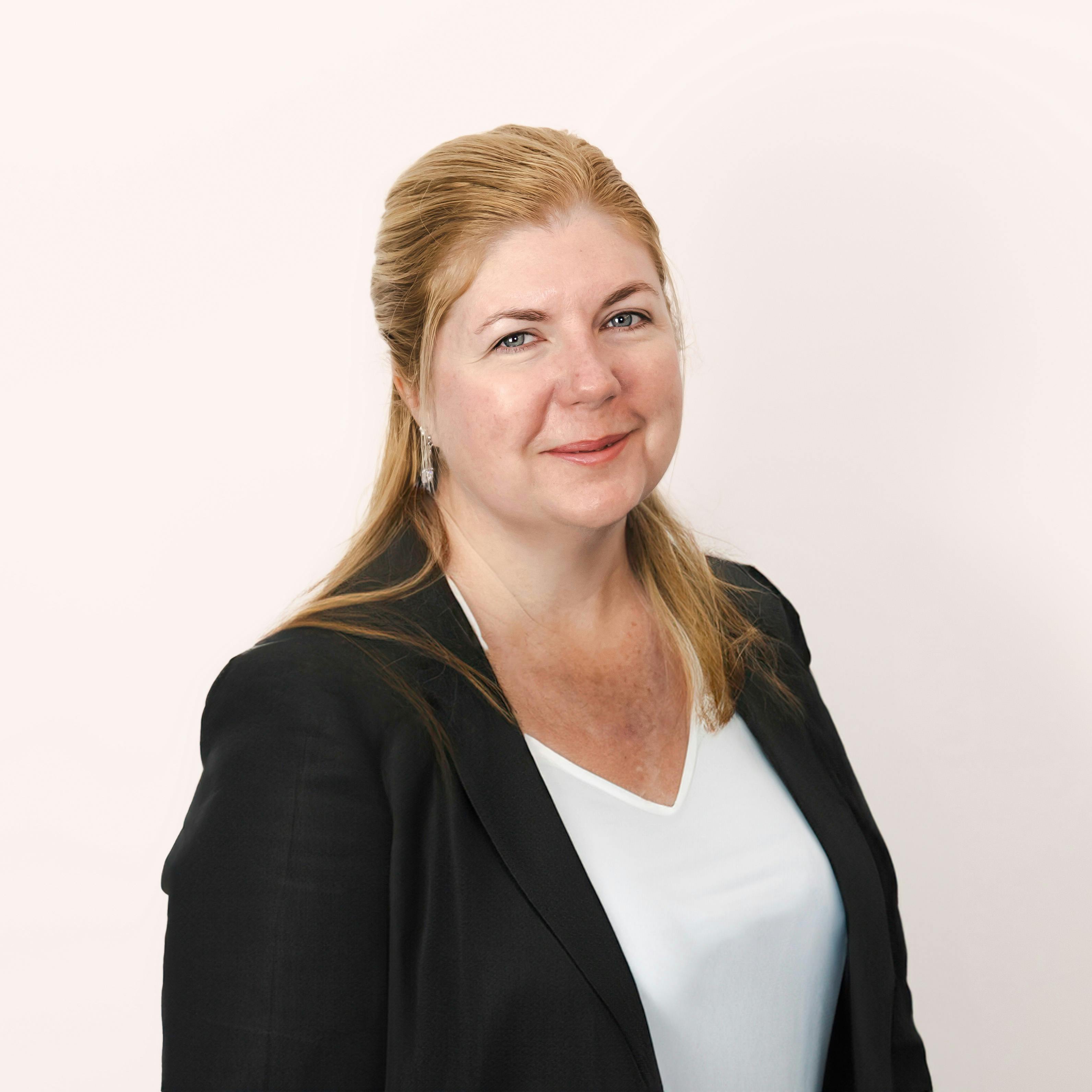
Dr Jenni Garden, Principal Consultant, Nature and Biodiversity
A leading practitioner in urban greening, heat, and biodiversity measurement and monitoring, Dr. Jenni Garden holds a PhD in urban ecology and landscape ecology, accompanied by a post-doctorate in climate change ecology and urban ecology.
Well-known within the team for her passionate lens on nature and an ever-evolving desire for learning, Jenni has taken impactful initiatives, including creating and driving our Liveable Cities Newsletter.
Jenni, your passion extends far beyond the workplace. Can you please offer a piece of advice for women who want to find the balance between personal passions with career ambitions, ensuring a holistic approach to growth and development.
When it comes to balancing your personal passions with your career ambitions, it's all about looking after yourself and setting some clear boundaries. Take the time to do things that light you up, whether it's getting out in nature, getting artsy, or diving into hobbies that really make you smile and get your heart singing. By giving yourself space for these things outside of work, you'll find a sweet spot that keeps your wellbeing in check and fires up your sense of purpose.
Here's the real trick though – find a way to align your personal passions and your professional goals. Don't think of them as separate worlds – they're more like two sides of the same coin. Remember that saying: “do what you love, and you’ll never work a day in your life”?! Embracing a holistic approach to growing and developing means realising that what gets you buzzing outside of work can actually boost your creativity, resilience, and job satisfaction.
Passion often fuels a desire for continuous learning. How does your enthusiasm for your work translate into opportunities for learning and development, especially for women in your team?
When you're as passionate about your work as I am about mine, being curious and diving headfirst into new ideas, techniques, and discoveries is exciting and energising! What I really love though is sharing my knowledge and excitement with my teammates and spreading the nature love across the wider Edge family.
I'm always on the lookout for ways to spark curiosity and growth in my teammates, from sharing photos and stories of my nature and birding trips, to organising training workshops on urban ecology, collaborating across projects, and even offering critter identifications and fun facts based on a teammate’s photo, sound recording, or even just a vague description!
I find that everyone has a nature connection and story, and sharing my knowledge and enthusiasm provides the space for others to share theirs and to get excited and curious. By nurturing a culture of continuous learning and development, we can all unlock our full potential and drive positive change within Edge and beyond.
It helps to go in with a growth-mindset, especially when receiving feedback.
Critique can hurt your confidence, but I try to see it as a gift that will help me improve instead.
In saying this, self-assurance is definitely something that I’m still working on, but it’s being made easier because of my incredibly supportive design team.
Alex Shute, Designer
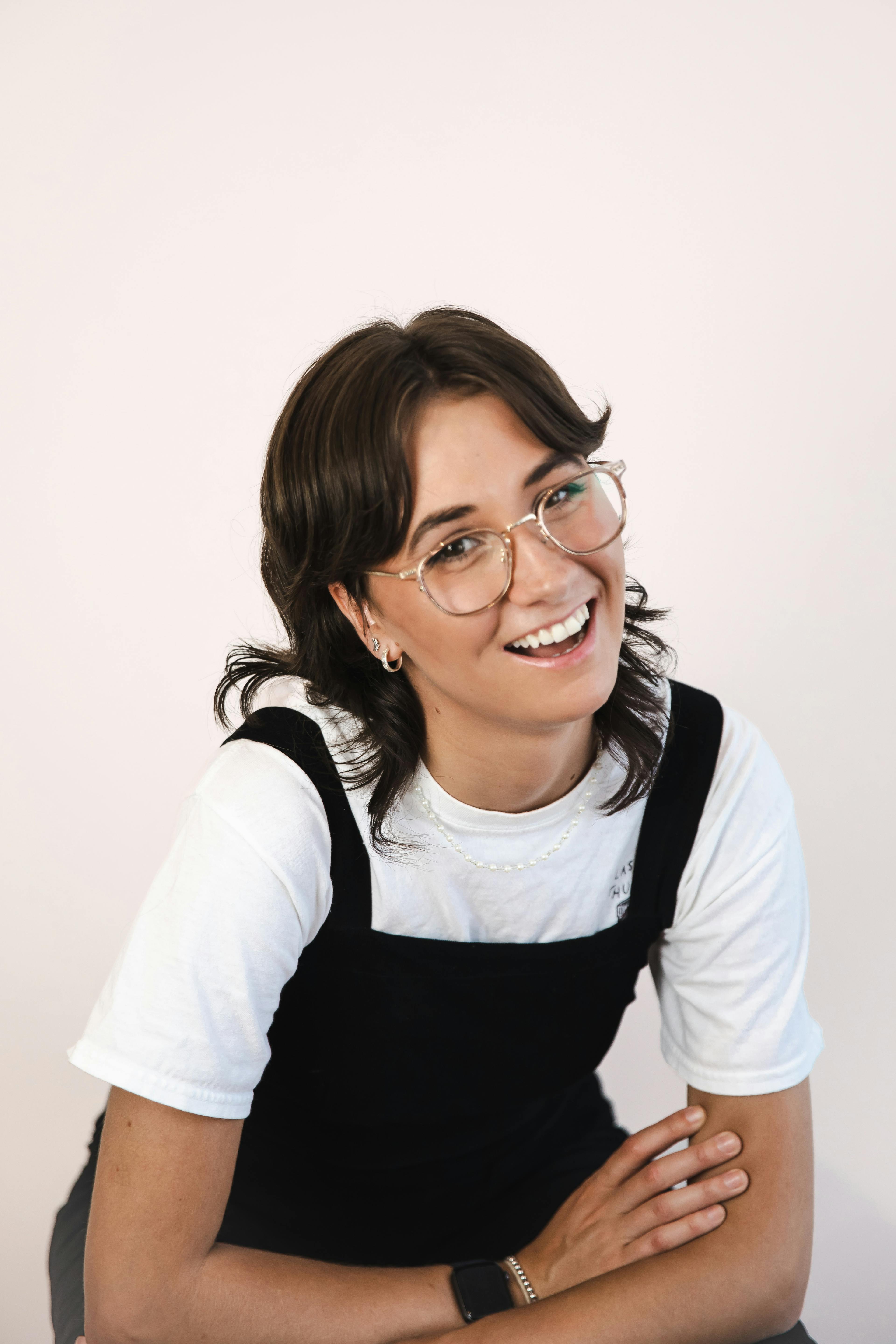
Alex Shute, Designer
Alex is one of Edge's talented Designers, excelling in bringing sustainability to life through brand experience, creation, engagement as well as activations in digital, campaigns and reporting. Some of her many other talents include photography, crocheting, illustration (and so much more... Just ask her!).
Recognising the internal challenges many women in the workforce may face, especially feelings of anxiety or potential inexperience, what advice would you offer to those navigating through such moments especially those who are new to the workforce?
Imposter syndrome is something that I battle with every day, but here’s a few small tips I can offer to women like myself who are newly navigating the workforce:
There’s power in staying curious.
You’re allowed to admit that you don’t know everything, as long as you ask thoughtful questions, especially by ‘managing up’. Asking questions is also a great way to validate your understanding of tasks and demonstrate your engagement.
Finally, what may seem like a dumb question, is probably something that others in the room are wondering as well.
Communicate with confidence.
Remove the apprehensive words from your emails: turn “Just checking in” into “I’m checking in." Stop apologising for things out of your control: Change “So sorry for the delay” into “Thank-you for your patience”, and “Sorry to bother you” into “I’d love your input”
Ration your use of exclamation marks and smiley faces. (I’m down to two each per email; it’s tough to say goodbye)
Remember those who paved the way.
Drawing inspiration from the remarkable women trailblazing in their industries always puts things into perspective. Melanie Perkins turned her startup (Canva) into a $39 Billion company. Sam Kerr captained the Matilda’s to fourth in the FIFA World Cup - the highest Australia has ever placed (men’s or women’s). Julia Gillard asserted herself in parliament with her iconic Misogyny Speech.
And coming soon… YOU made that awesome presentation about that thing and everyone loved it.
Alex, presenting innovative design ideas requires confidence. How do you cultivate and express confidence when bringing forward your creative concepts? Can you share instances where your self-assurance played a pivotal role in gaining support for your ideas within the organisation.
I think confidence comes down to loving what you do. If you radiate passion for your idea, your team and the client will sense that energy and be more likely to trust your instincts and expertise.
It also helps to go in with a growth-mindset, especially when receiving feedback. Critique can hurt your confidence, but I try to see it as a gift that will help me improve instead.
In saying this, self-assurance is definitely something that I’m still working on, but it’s being made easier because of my incredibly supportive design team.
For example, our Edge logo originated from a dodgy sketch in my notebook back when I was still an intern. If it wasn’t for the confidence my design director Caz (who sees potential in everything and everyone) gave me, it wouldn’t have ever seen the light of day or been developed by the team into the brand that Edge is now.
Unfortunately, being a part of a special team like this isn’t something you have much control over, but if you’re lucky enough to find one - my advice is to listen to them when they say they believe in you.
For me, women's inclusivity resonates with sisterhood. How we treat every human being, regardless of their background or beliefs, correlates with empowering us all.
Sisterhood is not just a bond between women; we gain strength when we stand together, creating a more inclusive and equitable environment. It also challenges stereotypes and breaks barriers.
Virginie Rubio, Business Service Administrator
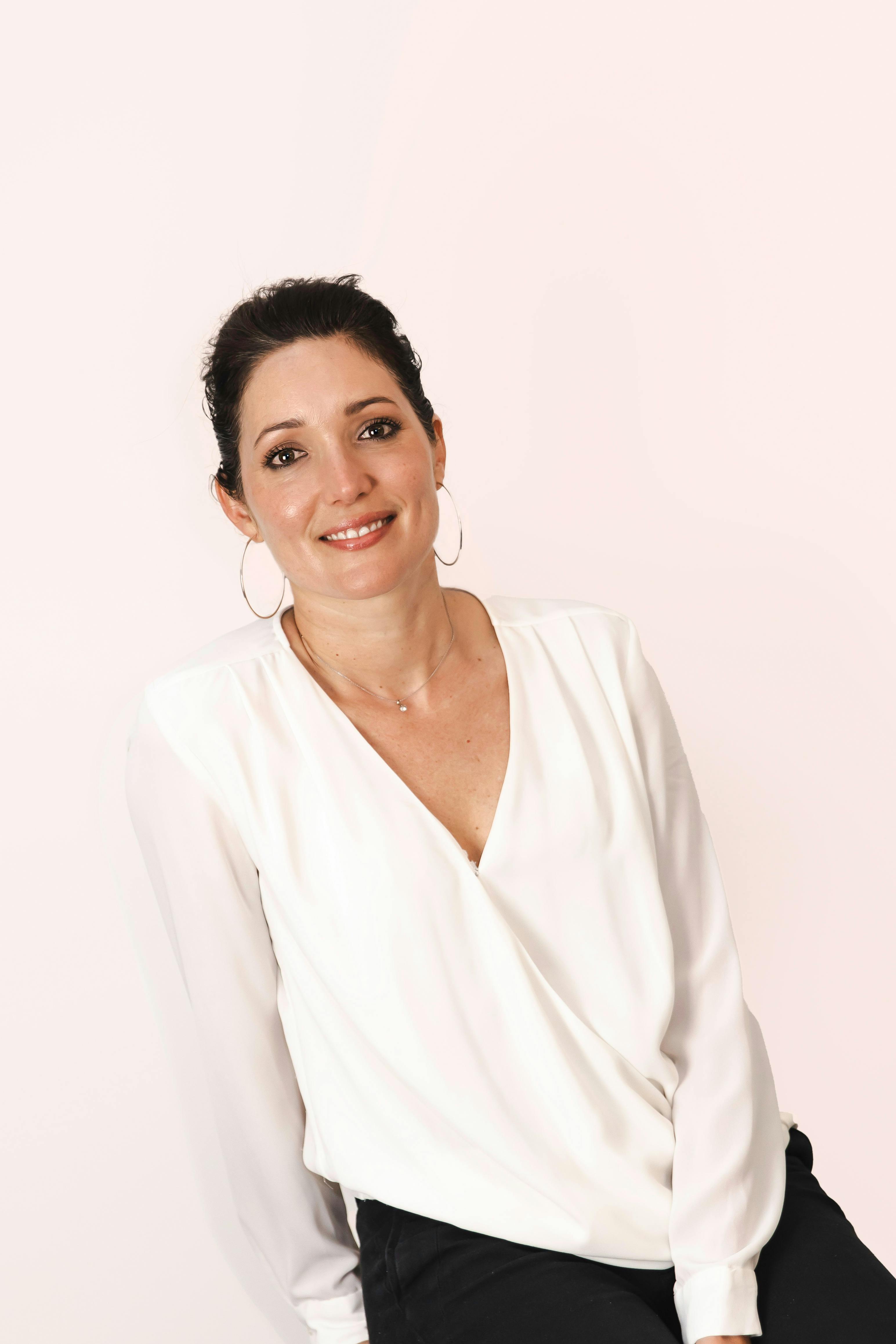
Virginie Rubio, Business Service Administrator
Virginie, fondly known as Vivi, plays a huge role in the everyday operations of the Edge organisation. Having been with the team for nearly three years, Vivi is one of the first people you will meet when you join the team. And there truly is no one better for this role than her.
Vivi, You are warmly regarded as one of the kindest people in the Edge team.
Can you please share examples of how approaching your responsibilities with kindness has made a difference, especially in fostering a sense of inclusion within the team?
I am touched to be regarded as one of the kindest individuals in our team. Thank you for your uplifting words. With all humility, I must admit that I view this differently. Instead, I feel that our workplace and our team have are at the center to set the tone of being inclusive, understanding, kind, and supportive.
I may naturally reciprocate this without realising it. You naturally pass the baton on what you receive. It is as simple as that. Our team is a subtle mix of passionate experts, down-to-earth, and high-achieving individuals.
We see amazing work behind the scenes, a deep level of commitment, and so many achievements. Like-minded people connect quite easily and naturally. We, as employees, have a voice, and we welcome our differences and approach things with an open mind. We naturally foster a sense of inclusion.
There are superstars for inclusivity among our team, some great examples that come to mind are team members who recognise work contributions, who send you little notes to ask about how your day is going, or checking up on you, who are active and genuine listeners and who welcome new team members most warmly.
It is a team spirit where everyone plays a part in it. It's these small yet meaningful gestures, rooted in our shared beliefs and behaviours, that shape the fabric of Edge. While policies and protocols have their place, to me, it's the genuine connections that truly define Edge's unique team culture.
Given the role you play in creating an inclusive team, what advice would you offer to others aiming to nurture inclusivity, particularly for women? Can you share insights and practical tips for fostering an environment that celebrates diversity and equality.
There is much more that needs to be done to nurture and increase inclusivity everywhere: in every group, community, organisation, and society. We should take a step back to understand what inclusivity means for each of us.
Inclusivity encompasses various aspects such as gender identity, ethnicity, age, disability, and religion, among others. Certainly, inclusivity resonates differently for each of us depending on our backgrounds, experiences, and life stage.
In my experience, nurturing inclusivity requires an open mindset. It plays a significant role in fostering a culture where a diverse mix of people can come to work feeling comfortable, confident, supported, valued, and provided with equal opportunities.
For me, women's inclusivity resonates with sisterhood. How we treat every human being, regardless of their background or beliefs, correlates with empowering us all. Sisterhood is not just a bond between women; we gain strength when we stand together, creating a more inclusive and equitable environment. It also challenges stereotypes and breaks barriers.
At Edge, our commitment to inclusivity is evident
With 54% of our team being women and half of our leaders being women, we prioritize diversity in recruitment processes and promotions. We implement inclusive practices, foster a culture of belonging, and strive for diverse representation across our regions.
I have seen firsthand how deeply committed Edge is to inclusivity, and I am excited to witness our continued growth and evolution in this area in the years to come.
In summary, my key advice would be to maintain an open mind, embrace acts of sisterhood, implement inclusive practices, and continuously strive for improvement.
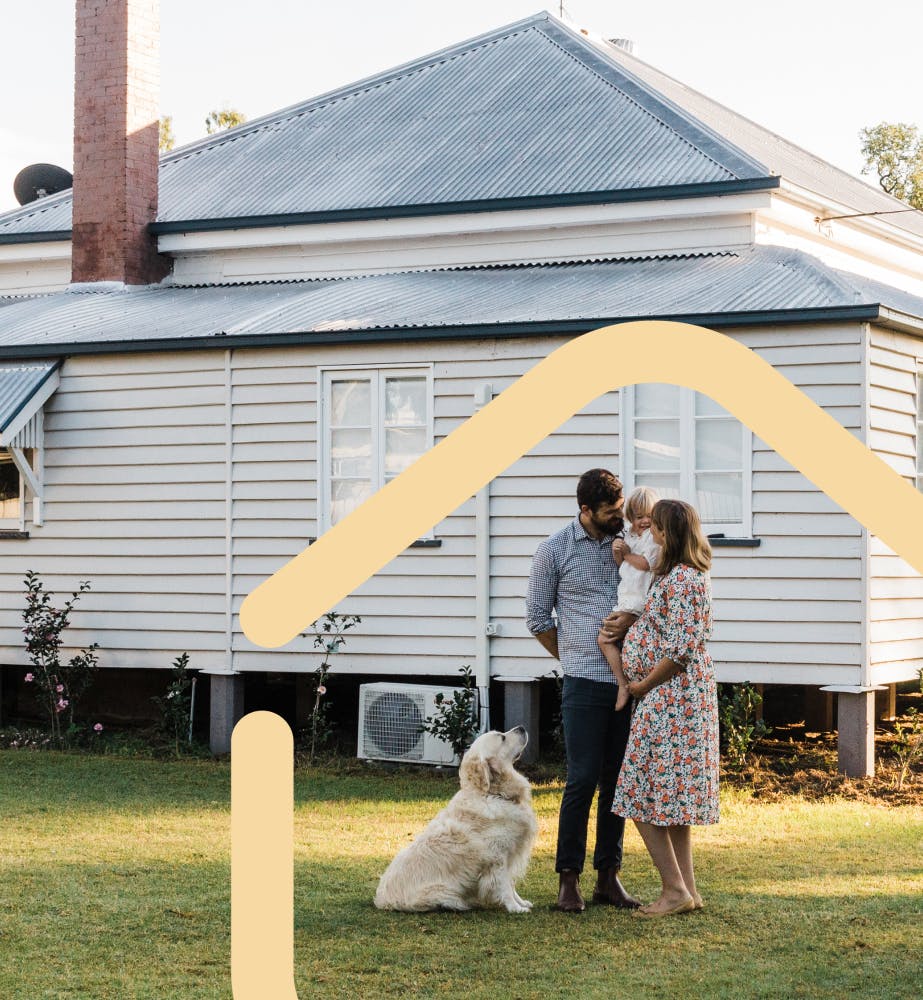
CRJO partnered with Edge to develop a toolkit for retrofitting homes, boosting bushfire resilience for homeowners, councils, and industry.



